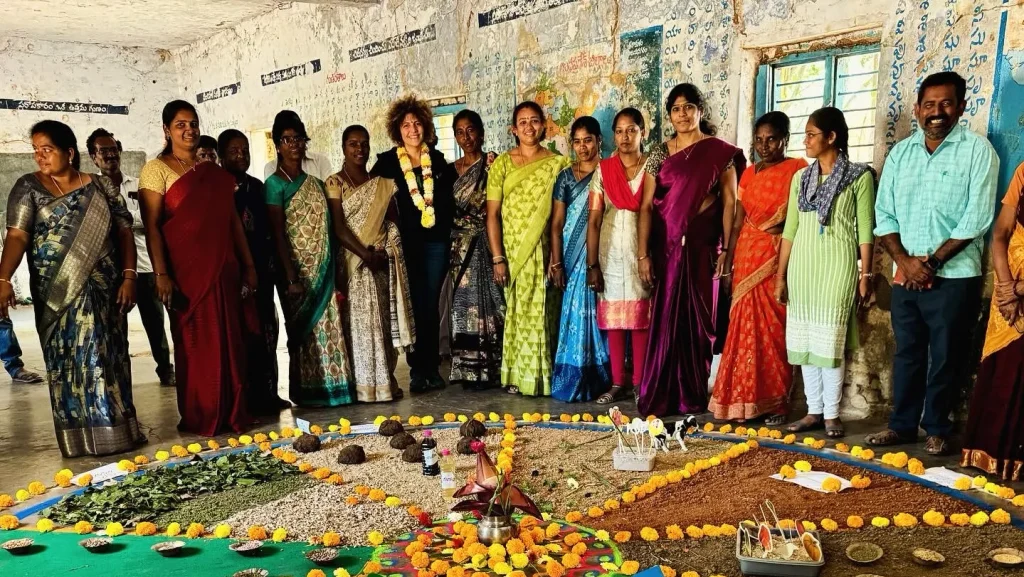Exploring the Regenerative Approach of the APCNF Model Through Smart Woman Leadership
Traveling deep into the heart of Andhra Pradesh has shown the profound impact of the Andhra Pradesh Community-Managed Natural Farming (APCNF) initiative, which is a testament to the power of community and the indomitable spirit of women leading (behind the scenes) the charge towards sustainable agriculture. The success of APCNF is supported by this story, which interweaves the tenacity, resourcefulness, and empowerment of women who have converted conventional roles into productive leadership positions.
The Catalysts of Change: Women at the Forefront
The transition to APCNF marked a significant shift in farming practices and societal dynamics within the villages. Traditionally seen as supporters, women emerged as pivotal figures in driving innovation. Their involvement brought about a palpable shift, transforming them into custodians of sustainability and resilience.
Among the myriad stories of change, the narratives of B. Swathi, K. Savitri, Hemalatha, and Chukka Parvathamma stand out, each illustrating the profound impact of APCNF on their lives and communities.
B. Swathi — A journey from conventional to natural farming saw Swathi embrace APCNF, leading to increased yields and income by cultivating papaya and diverse intercrops. Her story is a testament to the ecological and financial benefits of natural farming.
K. Savitri — Embracing the ATM (Any Time Money) model, Savitri revolutionized her farming practice, ensuring continuous income generation. Her transition showcases the economic empowerment achievable through APCNF.
Hemalatha — With her husband, Hemalatha adopted natural farming, expanding their land and improving their livelihood. Her experience demonstrates that natural farming provides a sustainable and profitable future.
Chukka Parvathamma — As a tenant farmer, Parvathamma’s engagement with APCNF through a kitchen garden initiative not only enhanced her family’s nutrition but also provided an additional source of income, demonstrating the holistic impact of the program.
These stories underline the APCNF model’s foundational pillars: women’s empowerment, ecological sustainability, and community resilience. The initiative’s success in Andhra Pradesh serves as a global blueprint for sustainable agriculture, emphasizing women’s critical role in leading environmental and social change.

